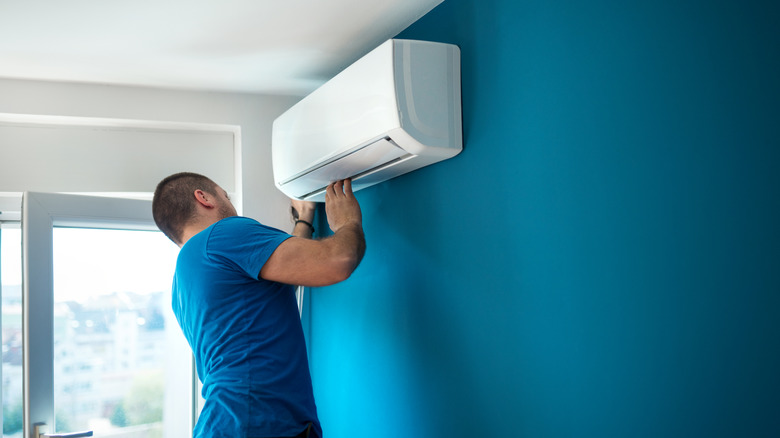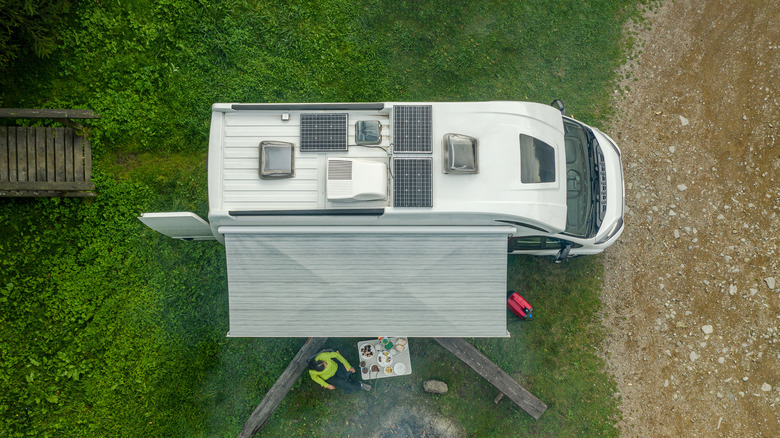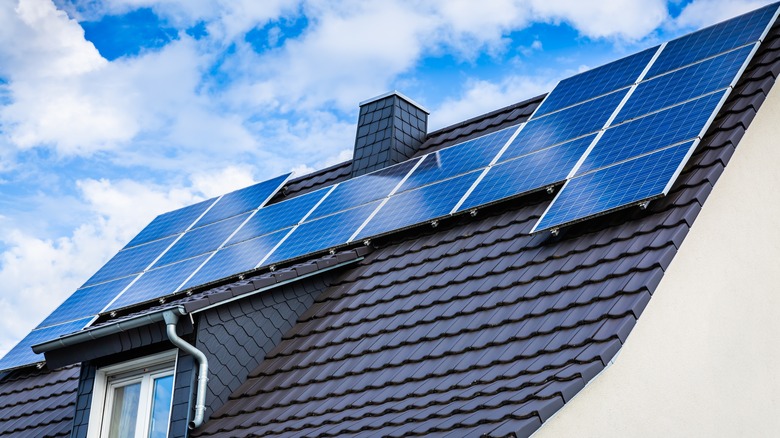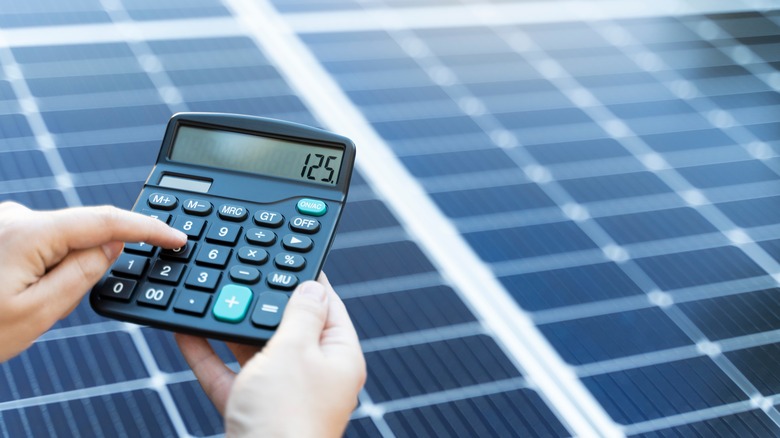Can Solar Panels Power An Air Conditioner? Here's How Many You'll Need To Run An A/C
Solar panels are a great way to reduce your carbon footprint and power your home with cleaner energy. But for those living in hotter climates who frequently use air conditioning, can solar panels reliably run A/C units?
The answer is yes they can, but there are some measures to take before setting up your solar panels with an A/C unit. The effectiveness of your solar panel setup depends on various factors, including what system you use, the type of solar panels used, and the size of the space you want to cool.
Despite their reputation as an expensive energy-saving solution, there are ways you can save money given you have the right setup in place. While you may have heard of fads like transparent solar panels, these offer significantly lower efficiency ratings than standard panels, so regular photovoltaic panels remain the best, most affordable option at the moment. If you're wondering how many solar panels you need to power your space with air conditioning, read on to learn about all the specifics and what equipment you need.
What equipment do you need to power your A/C?
The equipment required to power your A/C depends on what system you wish to use. The most commonly-used system is an on-grid system, which is an affordable option used by several households. Unlike other methods, this system doesn't require a battery to generate energy on cloudy days or during the evening. For off-roaders, you may want to use an off-grid system, as there's no reliance on connecting to an electricity grid. However, you will require batteries as part of your road trip checklist, as these are what your solar panels fully depend on when there's no sun.
As A/C units typically generate alternating current (AC) and solar panels rely on direct current (DC), you'll also need an inverter to convert the current. However, you can find DC-powered AC units which can be directly wired to solar panels without the need of an inverter. These are ideal for off-grid systems, as they can run entirely on the batteries without relying on the electricity grid.
How many solar panels do you need to power an A/C unit?
Before calculating how many solar panels you need to power your A/C unit, there are a few important considerations to make. The first is the tonnage of your air conditioning unit, as this will indicate how much power it consumes, and thus how much solar energy is required to run it. As an example, a 1,500 sq ft house would necessitate a 2.5 tonnage A/C unit. Of course, larger houses require higher tonnage as there's more space to fill, which will require more solar panels.
The size of your space isn't the only important factor when determining how many solar panels you need. Some solar panels are more efficient than others, meaning they can generate more electricity under the same conditions. The wattage of your air conditioner is another important measurement to consider. As a typical example, a household A/C unit is approximately 3,500 Watts and a solar panel generates 250 Watts on average, meaning you'll need 14 panels. If your A/C unit doesn't state the wattage, you can calculate it by multiplying the appliance's voltage and amps together.
How much will it cost to power an A/C unit using solar power?
There are several factors that may affect your expenses for powering an A/C unit with solar panels. Off-grid systems tend to be the most expensive option, as they require plenty of battery storage. The additional equipment isn't cheap, and as a result, you may end up paying up to double what you would for an on-grid system.
Efficiency ratings and power outage also make a difference. You may choose a premium, trusted brand like SunPower Solar Panels, or you might choose cheap conventional panels. It's worth noting that conventional panels are far more likely to be less efficient and not supply as much power given their cheaper build quality.
If you're using an on-grid system, one way to save on expenses is to sign up for net metering. Also referred to as Net Energy Metering (NEM), this billing system is used as a way to feed excess electricity generated back to the grid when generating more electricity than you currently need. Using net metering, your bill will be based on a net amount based on what energy you've taken from and sent back to the utility grid. This option is a cheaper alternative to purchasing and replacing batteries, which makes costs quickly add up.



